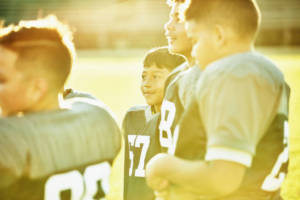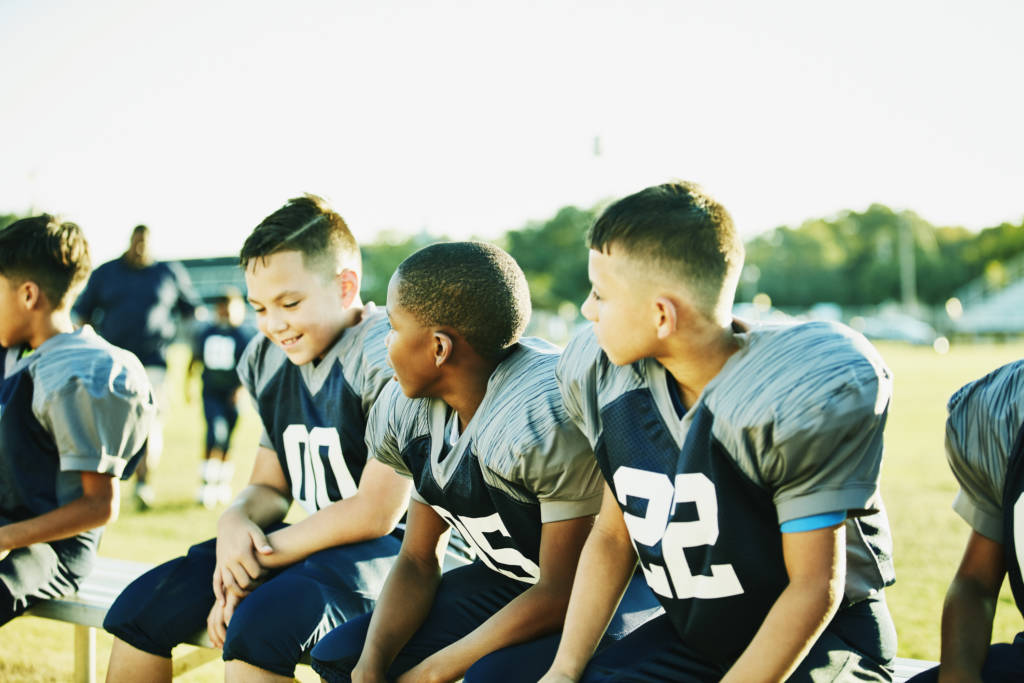
Coming from a broken home or suffering abuse can traumatize a child, but new research suggests team sports might be just the medicine these kids need.
Tracking U.S. health data from nearly 10,000 people, researchers found that teens who experienced childhood trauma and played team sports had lower odds of depression and anxiety as young adults.
“As a pediatrician going through training, you see a lot of children and families who face these challenges, and often we don’t have medical prescriptions to recommend,” said study author Dr. Molly Easterlin. She’s a clinical instructor in pediatrics at Cedars-Sinai Medical Center and a fellow of the UCLA National Clinician Scholars Program in Los Angeles.
“Medications don’t necessarily treat these experiences and the mental health outcomes that result,” Easterlin added. “So, trying to find other interventions that may be effective is important.”
Physical and mental health problems are more common throughout life for people who’ve faced adverse childhood experiences, such as physical and sexual abuse, emotional neglect, parental alcohol abuse, parental incarceration or living with a single parent, prior research has shown.
About half of all American children experience one of these traumas and one-quarter experience two or more, according to the study authors. But little research had examined what factors improve health outcomes for children exposed to adverse situations.
Easterlin and her colleagues used the U.S. National Longitudinal Study of Adolescent to Adult Health to compare the prevalence of three different adult mental health problems — including a depression or anxiety diagnosis or depressive symptoms — among 9,668 people with adverse childhood experiences who did and didn’t participate in team sports during adolescence.
By early adulthood (ages 24 to 32), those who’d participated in team sports between grades 7 and 12 had better mental health outcomes, the findings showed. About 17% had been diagnosed with depression, compared with 22% of peers who hadn’t played team sports, while about 12% received an anxiety diagnosis versus 17% of their peers.
Meanwhile, nearly 22% of those who’d played team sports during adolescence had current depressive symptoms, compared to 27.5% of peers who hadn’t played team sports.
Why the difference? Easterlin said team sports can increase self-esteem and help vulnerable adolescents feel socially accepted and connected to their school environment. All of these benefits can contribute to a sense of resilience, she added.
Amanda Paluch is a postdoctoral research fellow in the department of preventive medicine at Northwestern University Feinberg School of Medicine in Chicago. She said it’s “really striking” how far into the future team sports participation can affect mental health among children facing childhood trauma.
But it makes sense, she said, not only because team sports foster personal qualities but also because it provides positive role models in coaches and peers.
“Students who might be experiencing adverse child experiences might not have those role models in their life. And, therefore, this can help them become more resilient,” said Paluch, who co-authored an editorial accompanying the study.
Paluch and Easterlin agreed that, given the apparent mental health benefits, team sports participation should be made affordable for adolescents from all family income levels. Currently, expensive tryout leagues are common, with certain sports facilities off-limits to those unable to pay high fees, they said.
Easterlin said the findings should also spur pediatricians, parents and community members to promote team sports participation for these kids, along with “other programs that provide psychological and social support.”
The study was published online May 28 in JAMA Pediatrics.
More information
The National Child Traumatic Stress Network offers more on childhood trauma.
